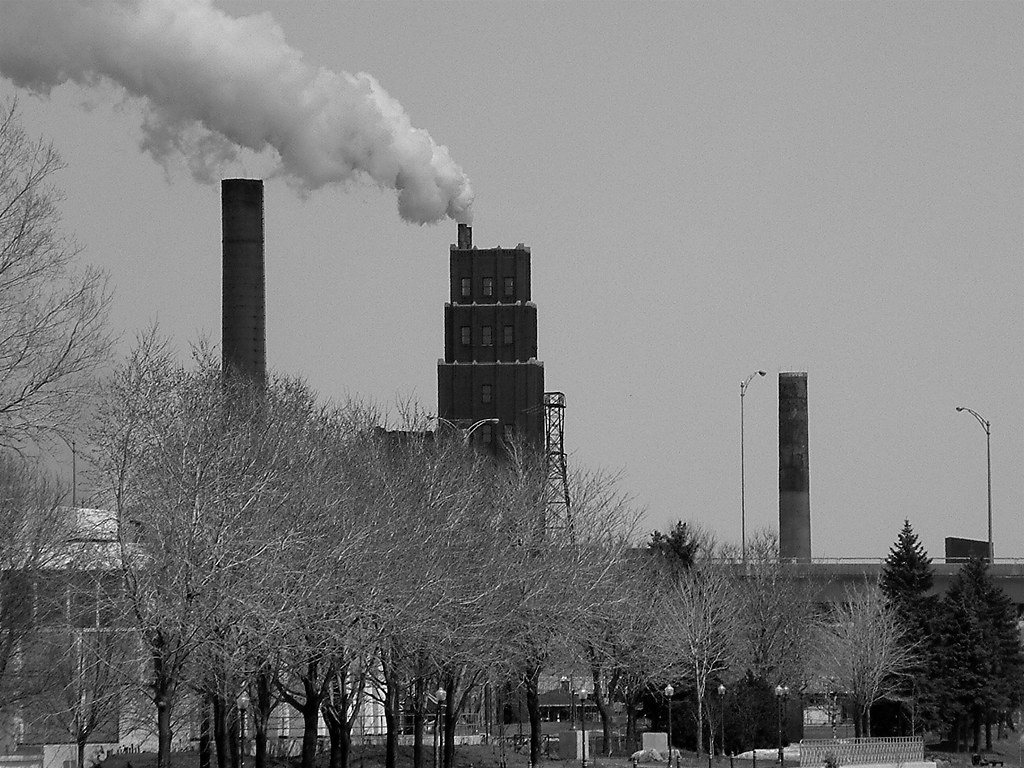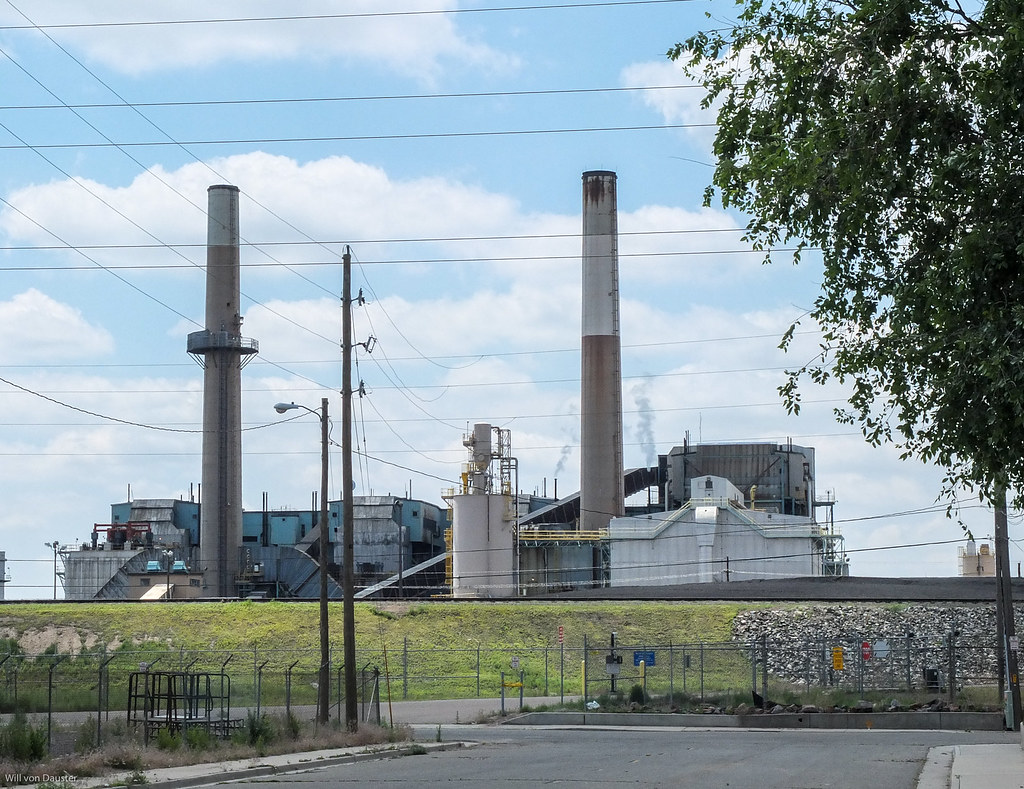Environmental Racism and Climate Change 101
Victoria Whalen, ACE Fellow
|March 10, 2022

Climate change is a worldwide issue that affects every community. However, due to systemic racism, climate change consequences disproportionately affect Black, Indigenous, and other POC communities first and worst. Environmental racism is another intersection of the climate crisis that can no longer be ignored. Minority and low-income communities are burdened with poor living conditions, contaminated natural resources, and the price of the ongoing climate crisis.
What is environmental racism?
Environmental racism is the disproportionate impact of environmental hazards on people of color. Through government policies, rules, and regulations, BIPOC and low-income communities are often forced to live near sources of toxic waste and pollution such as factories, landfills, major roadways/highways, and other sources of pollution.
Civil Rights leader Benjamin Chavis, coined the term in 1982 as,
“Racial discrimination in environmental policy-making, the enforcement of regulations and laws, the deliberate targeting of communities of colour for toxic waste facilities, the official sanctioning of the life-threatening presence of poisons and pollutants in our communities, and the history of excluding people of colour from leadership of the ecology movements.”
Examples of environmental racism
Throughout history, BIPOC and low-income communities have been riddled with this form of systemic racism. However, it can be difficult to spot environmental racism because it is often hidden by zoning laws, innovation, and the idea of gentrification. Below is a list of documented environmental racism examples:
- Industrial polluters such as toxic waste dumps, incinerators, coal plants, and landfills located around communities of color
- Poor workplace and living conditions due to a lack of regulations including buildings contaminated with lead or asbestos
- Redlining, blockbusting, and other zoning laws that negatively affect the property value of BIPOC communities
- Lack of access to clean air, water, and soil

Environmental Justice Movement
The environmental justice movement arose as a response to the constant environmental harms minority communities were experiencing. Often referred to as the father of the environmental justice movement, Dr. Robert Bullard defined it as, “all people and communities are entitled to equal protection of environmental and public health laws and regulations.”
A brief timeline
While environmental racism has systemic roots dating back centuries, the environmental justice movement was born out of the Civil Rights movement in the 1960s. Below is a brief timeline of some of the most significant events that have impacted the movement:
- 1968 – Memphis Sanitation Strike & Dr. Martin Luther King’s Assassination
- 1974 – “The Boldt Decision” United States v. Washington
- 1979 – The 1st Environmental Justice Lawsuit, Bean v. Southwestern Waste Management Group
- 1982 – Warren County Landfill Protest
- 1983 – Publication of Solid Waste Sites and the Houston Black Community
- 1987 – Publication of Toxic Waste in the United States
- 1988 – Formation of West Harlem Environmental Action (WE ACT)
- 1990 – Formation of the Indigenous Environmental Network
- 1991 – The first National People of Color Environmental Leadership Summit
- 1994 – President Clinton signs Executive Order 12898 (Federal Actions to Address Environmental Justice in Minority Populations and Low-Income Populations)

Environmental Racism & Climate Change
Typically when people are asked about climate change, their thoughts revolve around the sea-level rise, extreme weather events, or greenhouse gasses. However, race plays a crucial role in determining the severeness of climate consequences. In a Washington Post article, Penn State meteorologist Gregory Jenkins stated, “Racism is inexorably linked to climate change because it dictates who benefits from activities that produce planet-warming gases and who suffers most from the consequences.”
While climate change affects everyone worldwide, BIPOC and low-income communities are often disproportionately affected by the ongoing climate crisis. This also applies to vulnerable countries that do not have the resources to combat extreme weather events such as hurricanes, flooding, or earthquakes. For example, a study titled Environmental Justice through the Eye of Hurricane Katrina showed that over 30 percent of Black residents in New Orleans didn’t own their own transportation making it extremely difficult to flee to the area.
Reading List
Being an activist doesn’t always have to revolve around protests and rallies. Reading is a great form of activism because it offers a gateway to understanding the larger context of an issue.. If you want to learn more about the intersections of race and climate change try beginning with these five source materials:
- Jemez Principles for Democratic Organizing
- From the Ground Up: Environmental Racism and the Rise of the Environmental Justice Movement by Luke W. Cole and Sheila R. Foster
- Toxic Communities: Environmental Racism, Industrial Pollution, and Residential Mobility by Dorceta Taylor
- Toxic Wastes and Race in the United States Report by United Church of Christ
- Dumping in Dixie: Race, Class, and Environmental Quality by Robert D. Bullard
Want to read more? Check out the ACE Blog.
Join our Youth Action Network
More Blog Posts

Our Climate Wins Were on Display at the State of the Union
Today, the Biden Administration temporarily halted all pending decisions on 17 Liquefied “Natural” Gas (LNG) projects across the Gulf South.
Read More
ACE Honored As An Anthem Awards Finalist
Action for the Climate Emergency (ACE) announced today that it won Bronze in Best Use of AI at the 3rd …
Read More
BREAKING: Biden Halts LNG Export Expansion
Today, the Biden Administration temporarily halted all pending decisions on 17 Liquefied “Natural” Gas (LNG) projects across the Gulf South.
Read More